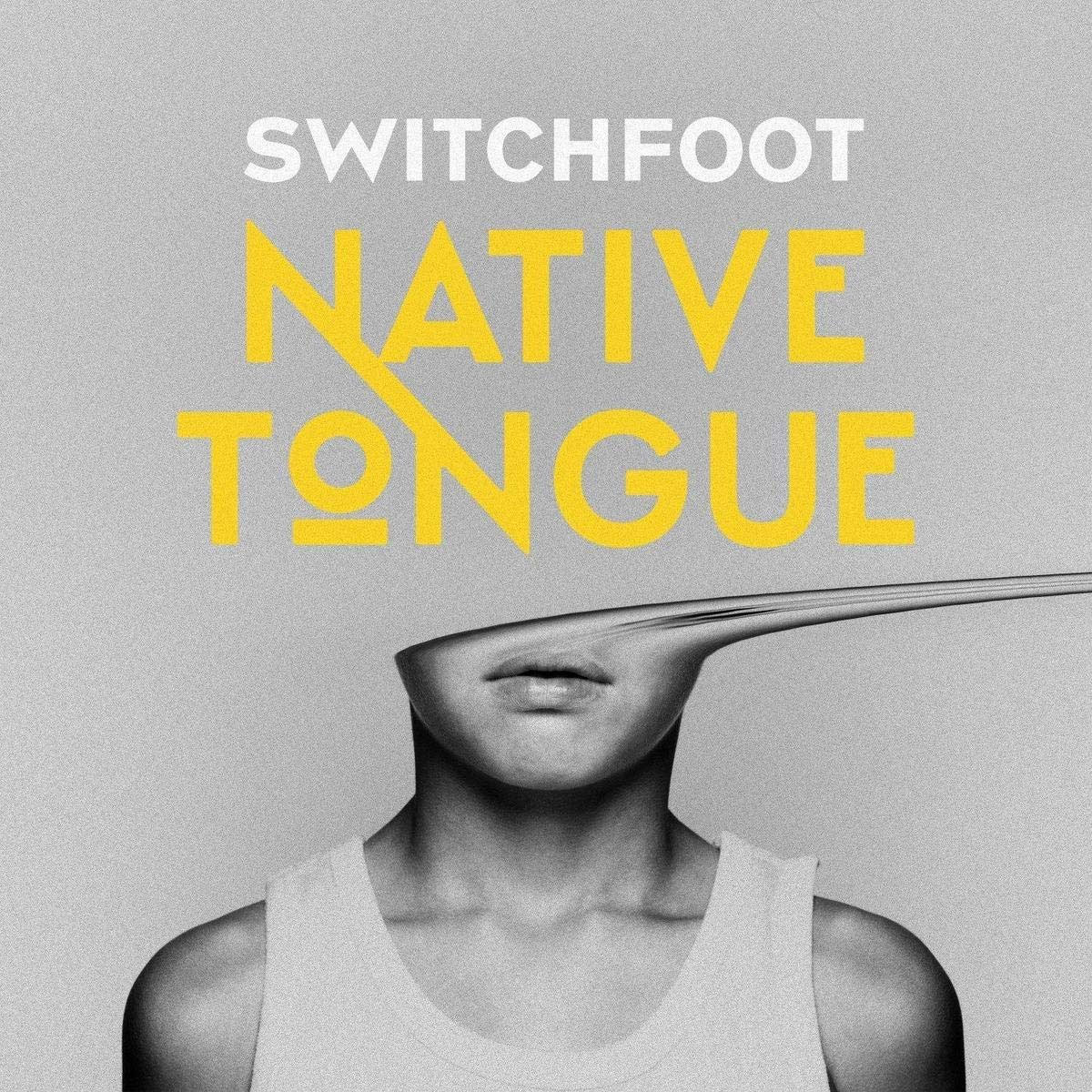

“What’s worth defending if everything’s ending?”
If Fading West was Switchfoot flirting with the fads of modern pop radio—and Where the Light Shines Through a mild corrective—Native Tongue is a full-on romantic pursuit of mainstream trends.
The thing is, even if the album (their first since a brief hiatus) marks a low ebb for Jon Foreman and company, it doesn’t exactly prove that Switchfoot has no business making radio-friendly material. They’re actually really good at it. No, it proves something entirely different: that popular taste itself currently favors the bland, the banal, and the shallow, and that pandering to it is akin to chasing fool’s gold. Ergo, we find ourselves with a sort of inverted lipstick-on-a-pig scenario, with a distinctive band forcing themselves to conform to the generic in a bid for a sturdier cultural foothold—not exactly an inspiring recipe, but one that the band manages to cajole into a decent record.
Ever since breaking up with Sony and building their own studio, Switchfoot has always hinted at sonic innovation with each new project, only to deliver another excellent alt-rock album full of optimistic anthems. There are typically two or three guitar-driven rockers, a few ballads, one or two CMM-ready mid-tempo singles, and then two or three songs crafted with an eye toward mainstream radio. Native Tongue ignores this familiar formula, with nearly half of its songs openly catering to the Top 40 audience. To the band’s credit, most of them land just as well as any other platitudinous pop hit. Title track and lead single ‘Native Tongue’ is perhaps the best example of this glossy approach with its gang vocal chants, garish snap samples, and thunderous percussion, but ‘All I Need’, ‘Voices’, ‘Joy Invincible’, ‘The Hardest Art’, and ‘We’re Gonna Be Alright’ all exhibit a sickly-sweet polish as the band tries on a number of voguish styles to varying effect.
None of these tracks are outright objectionable. The opposite, in fact—they’re just excessively mellifluous. Most of them have good bones, as they say, and they’re diverse enough that they don’t bleed together. And if I heard any of them on the radio I’d happily note that Switchfoot was receiving some overdue airtime. I’ve even found myself absentmindedly humming more than a few of the melodies. But the typical markers of authenticity that distinguish the band from the acts they are emulating here are few and far between; the desire to be fashionable is too obvious. If I had to name names, I’d suggest the overriding influences on Native Tongue were Twenty One Pilots and Imagine Dragons—the former which I like, the latter which I don’t particularly care for. And we should not discount the influence of Ryan Tedder and Brent Kutzle of OneRepublic, who both helped produce the album.
Foreman could have provided marginal separation from the pack by employing his customary lyrical sophistication. But while his skills as a poet surface occasionally—particularly in the two metaphors that serve as song titles—he’s writing for a target audience that doesn’t value finesse, so he often doesn’t bother going the extra mile. Themes and occasionally brilliant lyric snippets match the songster’s contemplative poetry of days past, but too often filler lines seem to have made it into the final draft. In fact, some of these lyrics are downright insipid—a criticism one hoped would never apply to such a gifted writer. Indeed, of all of Foreman’s traits as a musical artist—his guitar picking, his wordsmithing, his song crafting, his singing—it’s only the last two that prove distinctive for the bulk of Native Tongue, with numerous songs featuring segments impressively out of reach for fans who’d like to sing along.
Such critiques mainly apply to the half dozen or so trend-chasing songs where the band is aiming for mass appeal. Although there is plenty of cross-pollination, so to speak, if we set these songs aside as a mildly successful experiment in sonic mimicry, the rest of the album comprises a generous handful of decent-to-great Switchfoot songs. Tracks like guitar-heavy opener ‘Let It Happen’, acoustic-and-strings ballad ‘Prodigal Soul’, almost-rapping garage rocker ‘Take My Fire’, prayerful ‘The Strength to Let Go’, sonically-elusive ‘Oxygen’, and Beatles-lite ‘Wonderful Feeling’ all sound like near-vintage Switchfoot, even if they’d likely be picked over when stacked against the band’s best material. The stylistic standout is another Beatles-esque number, ‘Dig New Streams’, which comes complete with horns, a drastic tempo change, and some Tim Foreman lead vocals. Side note: I understand the need for an album to be structurally cohesive—and Native Tongue is sequenced quite well for how diverse it is, even if I’d make a few changes—but two of the three bonus tracks (‘White Lies’ and ‘Let’s Go Higher’) included on various releases are better than all but a few of the album tracks.
When writing and recording Hello Hurricane, the band was encouraged by a word from producer Mike Elizondo, who was brought in to help them whittle down their 80+ song pool to a single album. He prompted them to focus on the songs that were unique to Switchfoot—the songs that “only Switchfoot can deliver,” in the words of drummer Chad Butler. They responded with one of their best albums. Ten years later, they seem to have forgotten or consciously eschewed that suggestion, attempting to fit in rather than stand out. That said, even in imitation these guys know how to comport themselves. Consider the electronica of ‘The Hardest Art’ set against the classic rock vibe of ‘Wonderful Feeling’, set against the White Stripes/hip hop mashup of ‘Take My Fire’—few bands can shift gears so adeptly. Even acknowledging the charming eclecticism, however, the individual songs on Native Tongue are uncharacteristically vanilla for a band that has carved out their own little niche within the broader rock spectrum.
Favorite Tracks: Let It Happen; Dig New Streams; The Hardest Art (feat. Kaela Sinclair); Take My Fire; Oxygen.
Sources:
Butler, Chad. “Switchfoot Weathers the Storm”. Interview by John DiBiase. Jesus Freak Hideout. 12 January 2010.